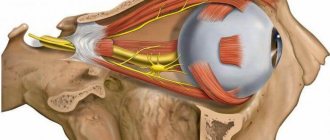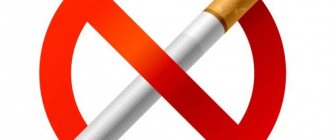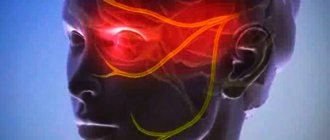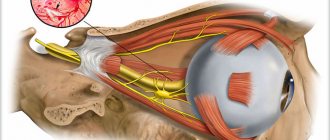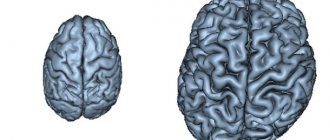Stiff trigeminal nerve: symptoms and treatment methods
If a person has a cold of the trigeminal nerve , symptoms appear almost immediately.
The patient feels a sharp pain that appears in the facial area. This nerve is considered one of the most important nodes found in the head. For this reason, untimely treatment can lead to negative consequences and even loss of sensitivity in the facial area. When the first symptoms appear, there is no need to hesitate and wait until they disappear on their own.
The person is strongly advised to see a doctor to confirm the diagnosis and prescribe a treatment regimen.
Causes
If a person has caught a cold in his trigeminal nerve, he may often wonder why this happened. You should definitely familiarize yourself with the provoking factors so that they can be avoided in the future.
In particular, the problem can be caused by a constantly running air conditioner, which is directed directly at a person. Also, open windows, both at home and in vehicles, can lead to illness.
Even cold wind outside has a negative impact on the condition of the trigeminal nerve. For this reason, a person should take more careful care of his health, so that later he does not have to suffer from unpleasant symptoms.
It should be noted that trigeminal neuritis can be triggered by certain factors:
- Infectious diseases that are of bacterial or viral origin.
- Various head injuries for which the person did not consult a doctor.
- Intoxication, especially chronic.
- Allergic reactions to various provoking factors.
- Immune system diseases.
- Regular stress to which a person is constantly exposed.
- Problems with blood circulation and pathologies of vascular structure.
If a person has a cold on the trigeminal nerve on his face, he should definitely think about the state of the immune system. The risk of encountering this disease increases significantly if the patient’s defenses are not working well. It is imperative to understand why the disease appeared and how to treat it. In such a situation, it will be possible to avoid negative consequences for the body.
Symptoms
When a patient has a cold in his trigeminal nerve, he will suffer from characteristic symptoms. The main one is significant pain in the facial area. It is predominantly paroxysmal in nature and feels like minor electric shocks. Affects only one side of the face.
There are other symptoms that occur when the trigeminal nerve has a cold:
- Excessive tearing, as well as increased salivation. A person cannot control these processes.
- Runny nose. It is often written off as a common cold, so no special treatment measures are taken.
- Increased irritability and anxiety, and sleep problems may also occur.
- Increased body temperature. In this case, fever may occur quite rarely.
- Numbness of some parts of the body, in particular the face in the affected area.
The main signs that appear on the face are peeling skin and redness of the problem area. A person may suffer from twitching facial muscles.
Often a spasm of the eyelids may occur , which feels quite unpleasant. You can visually notice that asymmetry of facial features has arisen. In particular, the smile looks unnatural; one corner of the lips is often drawn down.
How to treat
In order to accurately determine the principle of therapy, a person is recommended to consult a doctor. A medical specialist will be able to tell you exactly what to do in a situation where a nerve has been frozen. It is important not to self-medicate, because at best it will not give the desired results. Moreover, it often happens that a person faces complications of the disease if he has not started to fight it correctly and in a timely manner.
Treatment options:
- It will be necessary to eliminate the inflammatory process. For this, special tablets, droppers or injections are used. For example, a doctor may prescribe Ibuprofen, and the choice of drug will be based on the characteristics of the patient.
- Blockade. It is used to completely deprive the affected nerve of sensitivity. It is performed by introducing painkillers into the body.
- Surgical intervention. With its help, nerve tissue is restored. This is necessary in a situation where a person is injured.
- Allergy therapy. It is prescribed to a person in a situation where discomfort was provoked by a reaction to an allergen.
- Taking antidotes. They are used only when significant intoxication of the body has occurred.
- An operation in which the removal or transfer of vessels that put pressure on the nerve ending is performed.
If a person has managed to catch a cold of the trigeminal nerve, then quite often he is referred to physiotherapeutic procedures. UHF as well as electric currents can be used . As a rule, a patient does not need to be hospitalized unless there is a compelling reason for this.
It is worth noting that in some cases the unpleasant pathology is provoked not by hypothermia, but by other diseases. In this case, you will have to treat the second pathology, which contributed to the appearance of unpleasant symptoms. Once the cause of the disease is eliminated, it will be much easier to cope with inflammation of the trigeminal nerve.
Only a doctor should prescribe medications for treatment. He may prescribe anticonvulsants, anti-inflammatory medications, painkillers, and anti-anxiety medications.
Anti-inflammatory drugs for dental inflammation
It is almost impossible to endure acute toothache caused by inflammation of the nerve, gums, gumboil or other reasons. Therefore, dentists offer an impressive list of analgesics and antispasmodics that can relieve unpleasant symptoms in the shortest possible time.
Types of drugs for toothache
Acute toothache, known in medicine as odontalgia, is one of the most severe and difficult to tolerate. That is why it should be eliminated in a timely manner. As part of her drug treatment, analgesic, antispasmodic and complex drugs are used. Moreover, the choice should depend on the source of pain, the condition of the soft and bone tissues around it.
Accordingly, you first need to conduct the necessary clinical studies, then the doctor must check your medical history and choose the most optimal type of medication.
In exceptional cases, antibiotics can be used; they relieve pain and have a healing effect.
Analgesics affect the central nervous system, reducing the sensitivity of nerve endings near the bone tissue of the tooth. Therefore, the patient simply stops feeling pain.
Antispasmodics act by relaxing smooth muscles and dilating blood vessels near them. Accordingly, blood flow is normalized and the wound is quickly restored. Complex drugs are considered the most optimal. The fact is that pain can be caused by any reason.
And if there is simply no time to find out, you need to use such means. It remains to understand how to choose them wisely.
List of the best drugs
To eliminate the pain syndrome, strong drugs are selected, the action of which is based on dulling the sensitivity of the nerve endings both at the root of the tooth and around the jaws. But there are not many such drugs. The following names are considered to be the highest quality and most effective:
| Name | Main active ingredient | Manufacturer country |
| Ibuprofen | Ibuprofen | Serbia, Belarus, Ukraine |
| Nurofen | Ibuprofen | UK, Spain, Italy |
| Ketorol | Ketorolac | India |
| Amoxiclav | Amoxicillin | Austria |
| Took | Fenpiverinium bromide | India |
| Nise | Nimesulide | India |
| Lincomycin | Lincomycin | Russia |
If you want to stop an acute toothache, you should immediately consult a dentist. Only in this case will you be able to choose the right medicine and not make a mistake with the dosage or release form. And many are available only by prescription or are found only in dental clinics in the form of gels and injections for injection directly into the gums.
No matter how severe the pain, you cannot deviate from the standard dosage, regardless of the form of release of the drug.
But in order to get rid of pain, it is not enough to suppress it with medications; you must understand its nature and treat the damaged area.
The cause of the pain may be some organic or physical change that only a doctor can correct. Therefore, even if you don’t like dentists, you need to gather your strength and overcome your fear. In addition, some of the drugs described in the table are available only by prescription.
And others are found exclusively in dentists, so you can’t just drink them.
Ibuprofen
The main pharmacological actions of Ibuprofen are anti-inflammatory, antipyretic and analgesic, respectively.
These features of the drug help with polymyalgia rheumatica, osteoarthritis and other diseases associated with pain in the musculoskeletal system and discomfort in the muscles.
In dental practice, Ibuprofen is needed to numb the nerve endings in the area that hurts. Or if pus appears in the gums or the dental nerve is damaged, flux is diagnosed. It is necessary to remember some characteristics of this drug:
- distributed in the form of tablets, ointments and gel at 5%, suppositories and suspensions for children;
- dosage and regimen depend on which release form was chosen;
- this painkiller will cost 33-149 Russian rubles.
The medication is contraindicated in case of individual intolerance to the active substance. It is also not given for homeostasis disorders, progressive pathologies of the kidneys and liver, for gastric or intestinal bleeding, in the third trimester of pregnancy, and so on.
Give Ibuprofen with caution for heart failure, gastritis, colitis, stomach ulcers at any stage of severity.
This remedy poses some danger if the patient is a child under one year old, a nursing woman, or a person with an excessive penchant for strong alcoholic drinks.
In case of overdose, gastric lavage and further gradual symptomatic treatment are required.
The instructions for use indicate the following side effects - hearing loss, tinnitus, bronchospasms and hepatitis. You may experience tachycardia, anemia and increased sweating.
When applied topically, there is a risk of itching at the treatment site and an unpleasant taste in the mouth if Ibuprofen is used in dentistry.
Nurofen
Nurofen helps with almost all types of pain - from menstrual pain to post-operative pain. Therefore, it is worth focusing on its use in dentistry.
Nurofen is suitable for relieving pain from pinching the trigeminal nerve of the face, from damage to the tooth socket during treatment of caries, from tumors and gumboil, from the consequences of removing the hood of a wisdom tooth, that is, from pericoronitis.
Dentists usually prescribe an oral form of the drug, since the gel has a bad effect on the oral mucosa. It is necessary to remember that:
- distributed in the form of gel and tablets in a digestible coating;
- the gel is used up to four times a day, and tablets of 200 milligrams should be taken three times a day;
- price - from 83 to 400 Russian rubles; in social pharmacies the medicine is cheaper.
The annotation mentions contraindications for both adults and children. Nurofen is not prescribed for heart failure, hemophilia, impaired liver and kidney function, and gastrointestinal bleeding.
It poses a danger to nursing women, children under six years of age, and pregnant women in their last trimester. With long-term use of the drug, anemia, vomiting, heartburn, diarrhea, and erosion of the gastrointestinal tract are observed.
In rare cases, allergic reactions and sensory disturbances occur.
Ketorol
Ketorol is a good medicine for pain, which, unfortunately, does not affect the progress of the disease. This pharmaceutical drug is effective for headaches, after surgery and injuries, for myalgia, and damage to peripheral nerves.
Tablets are actively used by dentists if they need to reduce pain after caries treatment or tooth extraction at home. They also help in case of a violation of the structure of the dental canal, with a dental cyst or when installing a new crown.
The features of Ketorol are as follows:
- in pharmacies you can find tablets for oral use, gel and injections for intravenous administration;
- the required dosage regimen is determined by the attending physician depending on the severity of the pain and other factors;
- this non-steroidal drug will cost 42-449 Russian rubles.
Ketorol is contraindicated in case of hypersensitivity to the components of the composition, with hemophilia, if the intestines are inflamed, or with some other characteristics of the body that the doctor will list. It is not given for intestinal and stomach erosions, pregnancy, childbirth and lactation.
The medicine is also dangerous if the patient is under 16 years of age. About 3% of patients develop side effects. They may be plagued by swelling, headaches, and dizziness.
Blood pressure drops less frequently, sweating increases and skin rashes occur.
Amoxiclav
Amoxiclav, a broad-spectrum antibiotic from the penicillin group, is used to treat gum inflammation medicinally. Moreover, it can be used for diseases of the upper and lower respiratory tract, infections of the skin and soft tissues.
It also helps against gynecological diseases, lesions of the biliary or urinary tract. Additional indications are possible, determined during individual consultations with both dentists and other specialists.
It must be remembered that:
- the drug is available in the form of tablets for oral use and suspension;
- up to 600 milligrams per day for adults and up to 10 milligrams per kilogram of weight for children;
- An antibiotic costs at least 110-799 rubles, the price depends on the region and the pharmacy’s markup.
It is prohibited to use Amoxiclav in dental practice if a person has been diagnosed with infectious mononucleosis or lymphocytic leukemia.
It poses a danger in cases of high sensitivity to ibuprofen and in cases of previous diseases of the metabolic system. Cases of adverse reactions are rare.
But some patients complain of general malaise, loss of appetite, vomiting, dizziness and weakness. Sometimes causeless itching occurs, and you may encounter hives or other external manifestations of allergies.
Took
When choosing between tablets and solution in the treatment of toothache, it is better to give preference to the former.
They help with pain caused by spasms of smooth muscles, with neuralgia, dissection of the periosteum of the tooth and after surgery.
It can even relieve pain that occurs during diagnostic procedures in the dental office. For indications from other areas, please consult your pharmacist or medical specialist. We must not forget about a number of features of this medicine:
- distributed in the form of tablets of 500, 5 and 0.1 milligrams, as well as in the form of a weakly concentrated solution;
- dosage depends on age, form of release and severity of pain;
- the price for this combined remedy is 63-444 Russian rubles, in social pharmacies it is lower.
Doctors often call this name when asked what antibiotics to take for tooth inflammation. But you need to be prepared for an acute allergic reaction, including anaphylactic shock, stomatitis or low blood pressure.
Also, Bral should not be prescribed in any form if there is insufficient blood supply to the brain, with increased sensitivity, or with a body weight of less than five kilograms. It is harmful during pregnancy or breastfeeding.
It is also not recommended to be used during the treatment of glaucoma.
Nise
The main indication for use of Nise is headache and toothache. Most often, this drug helps during the removal of a wisdom tooth, in the treatment of gumboil, or in the healing of gums after orthodontic intervention.
Other indications for the use of Nise are fevers of various origins, osteoarthritis, osteoarthritis, rheumatoid arthritis. You can also use it to relieve pain after injuries and bruises of the limbs.
There are a number of characteristics to remember about Nise:
- this medicine is produced in the form of tablets of 50 and 100 milligrams, as well as in the form of a gel;
- tablets give 100 milligrams twice a day, and the maximum dose of the gel is 30 milligrams;
- prices start from 198 Russian rubles.
Contraindications are peptic ulcer disease, renal and liver failure. Nise should not be given if you are hypersensitive to the active substance, as well as during pregnancy and lactation.
The drug should be given with caution in case of diabetes mellitus, hypertension and lupus erythematosus. Side effects from using Nise include bronchospasms, urticaria, itching at the treatment site, and headache.
Some experience diarrhea, fluid retention and flaking. It is dangerous to combine it with treatment with folk or homeopathic remedies.
Lincomycin
Lincomycin is prescribed for purulent and infectious diseases of the skin. But it is important that the pathogen-microorganism is sensitive to the active substance, therefore the main diseases are erysipelas, mastitis, furunculosis and abscess.
Injections are sometimes used before medical intervention in dental clinics. More often, Lincomycin is prescribed for periodontitis, periodontitis, gingivitis and purulent abscesses. Other indications are determined individually and only by a doctor.
It is necessary to remember some features of these capsules and injections:
- the drug is distributed in the form of liquids for injection and capsules for oral use;
- the dosage is prescribed on an individual basis, since the doctor must take into account the medical history;
- This medication will cost 71-177 rubles.
The medicine can cause gastrointestinal disorders, including vomiting, pain in the abdominal area, bowel movements and eating behavior.
Also, patients using Lincomycin experience weakness, itchy skin, urticaria and other unpleasant side effects from the antibiotic.
It should not be used if you are highly sensitive to lincosamides or have kidney or liver diseases. Lincomycin can be harmful if the patient is no more than six years old.
Treatment of inflammation of the trigeminal nerve
The trigeminal nerve is one of the components of the 5th pair of cranial nerves. It is a small bundle of small nerve endings that are divided into three branches. The first branch is responsible for the sensitivity of the mandibular muscles, the second - the eyes, and the third - the maxillary muscles. If the trigeminal nerve is cold, the presence of an inflammatory process is signaled by severe muscle pain, increased and decreased sensitivity of the face.
The content of the article
Neuritis is an inflammatory process in the nerve processes, accompanied by the destruction of its outer shell. Conventionally, neuralgia is divided into two types:
- true - a separate disease that occurs due to compression (squeezing) of nerve processes;
- secondary – neuritis that occurs as a complication after a general infection, trauma and endogenous disorders.
The main symptoms of a trigeminal cold include severe pain in the face, which is accompanied by spontaneous muscle contraction. Neuritis occurs for the following reasons:
- infections (herpes, sinusitis, tuberculosis, ARVI);
- multiple sclerosis;
- brain tumors;
- hypothermia;
- vascular aneurysms;
- overstrain of facial muscles;
- gum abscess;
- congenital pathologies;
- post-traumatic adhesions;
- gingivitis and periodontitis.
Which nerves are most often inflamed during pregnancy?
When a person’s nerve becomes inflamed, he tries to see a doctor as soon as possible, because sometimes the pain is simply unbearable. Pregnant women also experience nerve inflammation, in which case not all drug pain relief is permitted. So which nerves can most often become inflamed in a woman during pregnancy and what can be done about it?
Intercostal neuralgia during pregnancy.
Most often it occurs due to pressure on the intercostal nerves by an enlarging and expanding uterus. Very often accompanied by unbearable pain, when the woman cannot even move.
Intercostal neuralgia is dangerous during pregnancy, as it can negatively affect the course of pregnancy and the fetus.
Signs of intercostal neuralgia
:
- Pain in the rib area can be different: dull, sharp, burning, aching. May be constant or intermittent and worsen with physical activity.
- The pain can also move to the area of the shoulder blade, lower back and back.
- Cramps of individual muscle groups may appear.
- Signs of intense sweating.
- Redness or paleness of the skin.
- Numbness of random parts of the body.
It is important not to confuse intercostal neuralgia with heart pain. Neuralgia pain cannot be quickly relieved, whereas cardiac pain goes away after taking medications for a short time. Heart pain does not increase with physical activity, unlike intercostal neuralgia.
Pinched sciatic nerve during pregnancy.
Inflammation of the sciatic nerve during pregnancy is characterized by a rather peculiar pain that can spread to the surface of the thigh, lower leg and foot. When the sciatic nerve is pinched during pregnancy, an inflammation process occurs, which provokes pain and interferes with walking and standing. Sometimes the pain becomes shooting in nature, which prevents pregnant women from sitting or sleeping.
Causes of pinching:
- Spinal injuries or lesions.
- Excessive physical activity.
- Hypothermia of a pregnant woman.
- Presence of intervertebral hernias.
- It may occur due to the displacement of the baby with its head down in the womb.
If the sciatic nerve is pinched during pregnancy, examination by x-ray or tomography is not possible, as this can have a bad effect on the fetus.
Neuritis of the facial nerve in pregnant women.
Inflammation of the facial nerve can be found in many pregnant women. Basically, disturbances in movement, sensitivity and facial expression occur together with paresis or paralysis. Most often occurs in the third trimester of pregnancy and after childbirth.
In most cases it resolves spontaneously. If recovery does not go away, treatment is prescribed on its own.
Causes:
- The herpes virus can cause nerve swelling and inflammation.
- Hypothermia and, as a result, nerve spasm.
- Hypertension and stroke.
- Hormonal changes in the body that also occur as a result of pregnancy.
- Unsuccessful treatment at the dentist.
- Previous sinusitis and otitis.
Neuritis of the facial nerve is accompanied by headache, impaired facial symmetry, and stress. For diagnosis, MRI is prescribed, except for the first trimester of pregnancy.
Inflammation of the trigeminal nerve during pregnancy.
Inflammation of the trigeminal nerve during pregnancy is observed due to the strong pressure of blood vessels on the nerve.
It occurs due to stress, nervous stress, metabolic and hormonal changes in the body of a pregnant woman.
Signs of trigeminal neuralgia:
- Typical inflammation - pain occurs 1-2 times a day, covering a small area of the face.
- Atypical inflammation - constant pain occurs over a large area of the face, without decreasing.
- The pain can occur from a small touch, smile, chewing and has a sharp, sudden nature.
Inflammation of the trigeminal nerve can be diagnosed using electroneurography in the second and third trimester of pregnancy.
Top
Main symptoms of neuritis
What are the symptoms of a cold trigeminal nerve? Neuritis is characterized by an acute course, so when inflammatory processes occur, severe pain immediately appears, which resembles electric shocks. Depending on the type of nerve root damage, symptoms will vary slightly.
Symptoms of a cold trigeminal nerve with damage to the brain centers:
- severe attacks of pain in the facial muscles;
- discomfort and “lumbago” while chewing food;
- pain on one or the other side of the face;
- hypo- or hypersensitivity of facial skin;
- disturbances in the functioning of the eyes and ears.
In case of damage to individual branches of the facial nerve, signs of neuritis will be:
- monotonous pain in the lower or upper part of the face;
- changes in taste and auditory reactions;
- numbness of the wings of the nose, lips, chin and other parts of the face;
- hypo- or hypersecretion of fluid by the conjunctiva of the eyes.
Symptoms and treatment of a cold trigeminal nerve can certainly only be determined by a specialist. Therapy depends on the cause that provoked the development of neuritis, as well as the severity of the disease.
How does neuritis manifest and how is it treated?
Attacks of increased sensitivity of the facial response system appear suddenly. Lasts 30 seconds or more. Everything is individual. For some patients, this is intense pain, when you can’t even touch the skin of your face. For others, the manifestations arise more calmly, it seems that there is an aching inside. And if this is the jaw area, then it seems that your teeth hurt .
Along with tingling sensations, numbness, the temperature may rise, and there will almost always be a headache. Therefore, when the trigeminal nerve is cold, the symptoms, treatment and the entire complex of procedures depend on the area of manifestation.
As discomfort increases, inflammation increases. The primary thing to fight is inflammation. This task is easier, since anti-inflammatory drugs do not always completely stop the inflammatory reaction, but they definitely reduce it. And if the trigeminal nerve has caught a cold, treatment should always be carried out immediately with the restoration of conductivity of the affected branch. Although sometimes it is not possible to achieve positive results.
If the trigeminal nerve has a cold, how to treat it is diagnosed by the condition of the tissues and blood vessels after a comprehensive examination. It is important that medications are selected together with an anti-inflammatory, analgesic effect and also with an increase in impaired nutrition of the facial conduction zone.
Principles of drug therapy
The sooner the diagnosis is made and treatment is started, the higher the likelihood of eliminating neuritis using conservative methods. Drug therapy can occur with the use of the following drugs:
- antiviral - eliminate viral pathogens of neuritis that provoke inflammation in tissues and pinching of nerve roots;
- analgesic – relieve severe pain, easing the course of the disease;
- antiphlogistic – eliminate inflammatory processes, promoting decompression of nerve endings;
- antispasmodic - prevent spontaneous muscle contraction, causing discomfort;
- glucocorticosteroids - reduce tissue swelling and accelerate their regeneration.
If a person has a cold of the trigeminal nerve, treatment should begin in the first days of the manifestation of neuralgia. Untimely and inadequate treatment can cause serious complications, namely:
- ataxia;
- cerebellar hematoma;
- facial paresis;
- hearing loss.
Review of effective drugs
Let's talk about how to treat a cold trigeminal nerve. In pharmacotherapy, an integrated approach using symptomatic and pathogenetic drugs is used to eliminate neuritis. The most effective in eliminating neuralgia will be:
- "Acyclovir" is an antiviral agent that helps eliminate pathogens at the site of inflammation;
- “Promedol” is an anesthetic drug that affects the functioning of the central nervous system, preventing the processing of impulses coming from affected tissues;
- "Indomethacin" is a non-steroidal anti-inflammatory drug that promotes decompression of the affected nerve bundles;
- "Dexamethasone" is a glucocorticosteroid hormone that eliminates inflammation and swelling of tissues;
- "Mydocalm" is a muscle relaxant that inhibits the reflex excitability of nerve cells.
Causes
Hypothermia, bacterial or viral diseases, dental, surgical penetration into the oral cavity and area of the ENT organs, or mechanical trauma can cause inflammation of the trigeminal nerve. Past viral diseases, including a genetic disease, psycho-emotional stress, long-term nervous conditions, and a reduced immune status of the body lead to the fact that even minor hypothermia can cause the trigeminal nerve to become cold, treatment of which does not always give results. Inflammation of the response zone on the face occurs due to weakening of the immune system during stress conditions or against the background of a decrease in the body’s defenses for a long time.
Diagnostics
Trigeminal neuralgia is a very serious disease, so specialists often have difficulty making a correct diagnosis. For the most correct differential diagnosis, consultations with a neurosurgeon, neurologist, ENT specialist and dentist are needed.
Modern instrumental examination methods will help to most accurately establish the diagnosis.
MR angiography
This study is effective for identifying vascular aneurysms or other vascular pathologies. The essence of the technique allows you to obtain a clear three-dimensional image of blood vessels. Sometimes, for more accurate data, a contrast agent is used during the study.
Trigeminal cold symptoms
Pain on one side of the jaw, radiating to the teeth , disruption of the conduction of signals along the chain of the response system occurs against the background of the fact that the trigeminal nerve is cold. Often patients also feel pain in several teeth at once.
Neuritis worsens at the slightest weakening of the body and against a background of stress. Indeed, swelling and an increase in the volume of the mimic zone of inflammation of the upper and lower jaw leads to pain, radiating to the root part of the teeth. Blood circulation is impaired. The area that is cold is involved in the process of pain.
It could be:
- frontal part above the eye;
- eyelid;
- temple;
- corner of the mouth;
- buccal area near the nose.
Therefore, when the trigeminal nerve is cold, how to treat it depends on the area of the lesion.
Branches of the trigeminal nerve, cold of the trigeminal nerve how to treat
Inflammatory nerve damage manifests itself unilaterally. Its branches spread across the face. It happens that a very small area is supercooled. Compression of the roots is noted in a small area. If the facial nerve is affected, the trigeminal nerve has caught a cold without treating the inflammation, repeated neuritis can affect the ear area.
What is trigeminal neuralgia and why does it occur?
Considering the tendency of a woman expecting a child to edema, the most common cause of nerve damage is considered to be compression of its root by vessels in the cranial cavity. This effect is aggravated by the changes in the body that accompany pregnancy:
- state of stress and exposure to nervous stress;
- hormonal changes;
- change in the balance of microelements.
The reluctance of medical scientists to properly highlight this problem and the lack of publications on this topic is mainly explained by the difficulties of treatment.
